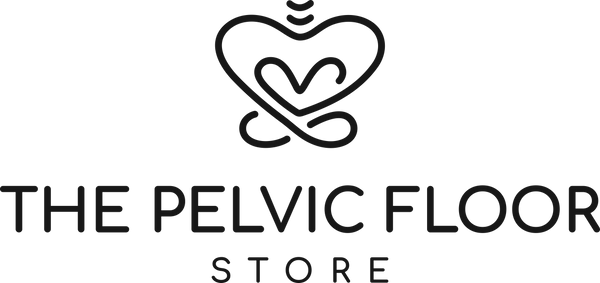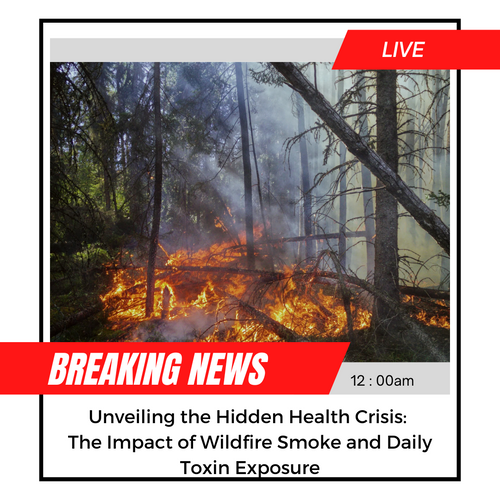Every breath we take connects us to our environment, but when that environment is compromised like what is occuring with the California wildfires or with our normal daily chemical exposure, our health faces risks we might not immediately notice. Wildfire smoke, laden with harmful particles and toxins, disrupts our bodies in ways that ripple through hormones, fertility, mental health, and more. Add to this the pervasive daily exposure to pesticides, plastics, and pollutants, and it becomes essential to understand how to protect and detoxify our bodies for long-term health.
How We Are Exposed to Toxins Daily
Airborne Pollutants
Airborne toxins are some of the most insidious threats to our health. From wildfire smoke to car exhaust and industrial emissions, fine particulate matter (PM2.5) enters our lungs and bloodstream, triggering respiratory and systemic inflammation. Wildfires also release carbon monoxide and volatile organic compounds (VOCs), which spread far beyond the immediate fire zone, affecting millions.
Toxins in Food and Water
-
Pesticides and Herbicides: Conventional farming practices often leave harmful chemical residues on produce.
-
Plastic Contaminants: Microplastics and BPA leach into our food and drinks, disrupting hormonal balance and increasing inflammation.
Household and Personal Care Products
From cleaning supplies to cosmetics, many everyday items contain phthalates, parabens, and synthetic fragrances—chemicals known to disrupt the endocrine system.
Indoor Pollution
The air inside our homes can harbor toxins from building materials, paints, and synthetic furnishings. Poor ventilation exacerbates exposure, making indoor plants an effective and natural way to purify the air.
The Impact of Toxins on Health
Hormonal Imbalance
Environmental toxins mimic hormones like estrogen, throwing off the body's natural hormonal balance. This can exacerbate conditions like PCOS, infertility, and menopause symptoms, while also affecting libido and mood.
Respiratory and Cardiovascular Strain
Inhalation of toxins from wildfire smoke and everyday pollution can lead to lung inflammation, reduced oxygen capacity, and long-term cardiovascular issues, including heart disease.
Mental and Emotional Well-being
Exposure to toxins contributes to oxidative stress, linked to anxiety, depression, and cognitive decline. When the brain is under toxic stress, mental health often suffers silently until symptoms become severe.
How to Naturally Detox Your Body
1. Nutrition for Detoxification
Chlorella and Spirulina
These algae are superfoods known for their detoxifying properties. Chlorella binds to heavy metals, while spirulina boosts immunity and reduces inflammation.
Liver-Supporting Foods
-
Cruciferous vegetables like broccoli, kale, and Brussels sprouts help the liver process and eliminate toxins.
-
Antioxidant-rich foods such as berries and citrus protect cells from oxidative damage.
Stay Hydrated
Water is critical for flushing toxins through the kidneys. Add a squeeze of lemon for an extra detoxifying boost.
2. Sweat It Out
The Power of Saunas
Sweating is a natural way to eliminate toxins. Infrared saunas are particularly effective for releasing heavy metals and chemical residues stored in fat tissue.
Exercise
High-intensity interval training (HIIT) and yoga promote sweating and circulation, which enhance the body's natural detox processes.
3. Optimize Gut Health
Probiotics and Prebiotics
Probiotics (like yogurt, kimchi, and sauerkraut) replenish good bacteria in the gut, while prebiotics (bananas, garlic, and oats) feed these beneficial microbes.
Fiber-Rich Foods
Whole grains, legumes, and vegetables promote regular bowel movements, which help eliminate toxins through waste.
4. Purify Your Environment
Household Plants
Certain plants, like spider plants, peace lilies, and snake plants, naturally filter indoor air, removing toxins such as benzene, formaldehyde, and carbon monoxide.
Air Purifiers
Invest in a high-quality air purifier, especially during wildfire season, to remove harmful particulates from your indoor air.
5. Mindful Detox Practices
Meditation and Breathwork
Mindfulness and controlled breathing reduce stress, which can otherwise hinder the body’s detoxification pathways. Deep-breathing exercises also help strengthen the lungs after smoke exposure.
Epsom Salt Baths
A warm bath with Epsom salts can help draw out toxins through the skin while promoting relaxation.
When to Seek Professional Help
If you’re experiencing persistent symptoms like fatigue, hormonal imbalances, or respiratory issues, it’s time to consult a healthcare provider. The right physician can help assess toxin exposure and guide you through a tailored recovery plan.
Types of Physicians to Consult
-
Functional Medicine Doctors
These practitioners specialize in identifying the root causes of health issues, including toxin exposure. -
Integrative Health Specialists
Combining conventional and holistic medicine, they can create a personalized detox plan. -
Endocrinologists
For toxin-induced hormonal issues, endocrinologists offer precise testing and treatment options. -
Gynecologist/Urogynecologists, Urologist, and Hormone Specialists
If toxins have disrupted fertility, libido, or overall hormonal health, consulting a heath practitioner is essential.
Long-Term Steps for a Healthier Lifestyle
-
Choose Organic: Prioritize organic produce to reduce pesticide exposure.
-
Ditch Plastics: Use glass or stainless steel containers for food storage.
-
Upgrade Your Home: Switch to non-toxic cleaning products and incorporate indoor plants for air purification.
-
Filter Your Water: A good water filter can eliminate heavy metals, chlorine, and other toxins.
-
Stay Vigilant: Monitor air quality updates and avoid outdoor activities during wildfire alerts.
Toxins from wildfire smoke and daily environmental exposure are invisible threats with profound impacts on our health. By adopting a proactive approach—like eating detoxifying foods, incorporating supplements like chlorella and spirulina, using saunas, and prioritizing clean air—you can empower your body to heal and thrive. Seeking professional guidance and making informed lifestyle changes can turn these challenges into opportunities for better health.






